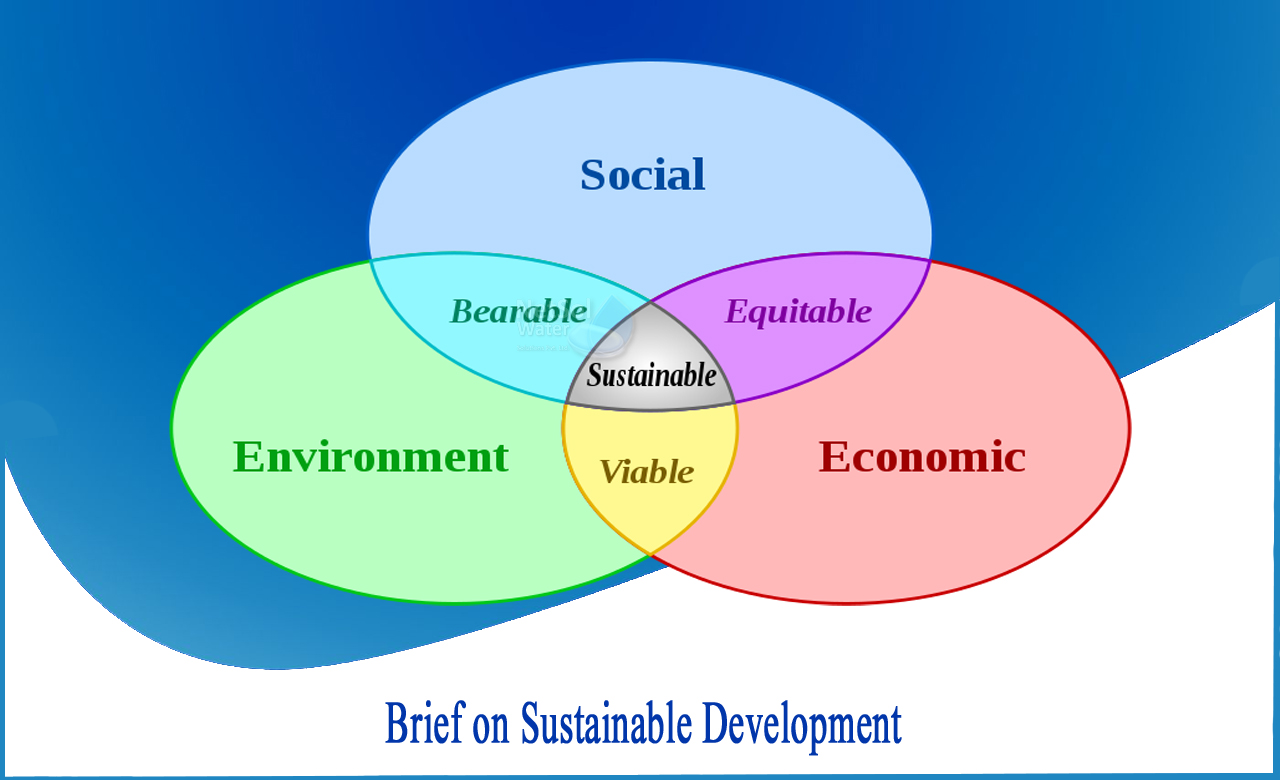Sustainable development is a framework for achieving human development goals while also preserving natural systems' ability to produce the natural resources and ecosystem services that the economy and society rely on. The targeted outcome is a state of society in which living circumstances and resources are utilized to suit human needs without jeopardizing the natural system's integrity and stability.
Sustainable development is defined as development that meets current needs while not jeopardizing future generations' ability to meet their own. Sustainable development combines concern for natural systems' carrying capacity with humanity's social, political, and economic issues.
The study of sustainable development and environmental science is known as sustainability science. The obligation of current generations to renew, preserves, and develop planetary resources for future generations is emphasized.
THE TWO KEY CONCEPTS TO SUSTAINABLE DEVELOPMENT:
· The idea of limitations imposed by the state of technology and social organization on the environment's ability to meet present, particularly the essential needs of the world's poor, to which overriding priority should be given; and
· The idea of limitations imposed by the state of technology and social organization on the environment's ability to meet future needs.
EVOLUTION OF SUSTAINABLE DEVELOPMENT
The concept of sustainability stems back to the early twentieth century, during the industrial revolution, when the environmental movement was split into two factions: conservationists and preservationists.
Conservationists were concerned with how nature should be used, whilst preservationists were concerned with how nature should be protected from being used. To put it another way, conservation aimed to limit human impact whereas preservation aimed to eliminate it entirely. Several reactions occurred as the first signs of an environmental disaster began to emerge.
Following an international summit in Fontainebleau, France in October 1948, the International Union for Conservation of Nature (IUCN) was established. Its proponents wanted to make sure that any use of natural resources was fair and environmentally sound. The Club of Rome, a think tank made up of a small international group of people from academia, civil society, diplomacy, and industry, gained widespread attention in 1972 with its report “The Limits to Growth”, which predicted that economic growth could not be sustained indefinitely due to limited natural resource availability, particularly oil.
PILLARS OF SUSTAINABLE DEVELOPMENT
The concept of three dimensions, or environmental, social, and economic sustainability, has become central to mainstream sustainability thinking.
These have been represented as pillars, concentric circles, and interlocking circles, among other things. The IUCN utilizes the interconnecting rings model to show how the three goals must be better linked, with action taken to restore the balance between sustainable elements.
Agenda 21 is a non-binding action plan that was adopted by over 178 governments during the 1992 'Earth Summit.' Despite the fact that the Agenda lacks the legal authority of international law, the adoption of the documents implies a tremendous moral commitment to guarantee that the strategies are implemented. This "global partnership's" basic concept is that all countries can safeguard the environment while still experiencing economic prosperity.
Climate change is increasingly being recognized as having disproportionately negative consequences for impoverished people who already live in insecure situations. Climate change, in all of its forms, exacerbates existing disparities faced by these marginalized people. It has the potential to jeopardize the implementation of many people's fundamental rights, as well as halt progress towards the achievement of globally agreed development targets, such as the Millennium Development Goals (MDGs). The fact that people who suffer the most from climate change have contributed the least to its cause is a global justice concern.
Because the world's wealthier countries have contributed the most to the problem, climate justice recognizes that they have a larger obligation to act, and to act swiftly. Many people are concerned that whatever international agreement is reached, it would exacerbate the already unequal burden on the poor and vulnerable. Around the world, an ever-increasing number of social movements and civil society organizations are organizing around the climate, the justice agenda.




